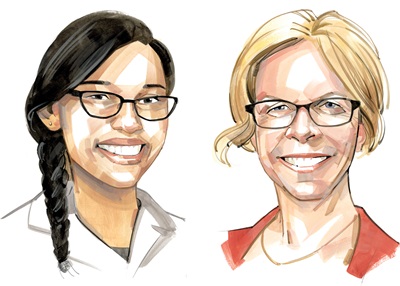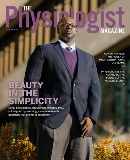It's a Postdoc Life
How to prepare for postdoctoral training.

Each issue, we ask a trainee member to pose their career questions to an established investigator and mentor. Here, Lindsey Ramírez, a graduate research assistant at the Medical College of Georgia and an APS 2020–2021 Porter Fellow, asks Kathryn Sandberg, PhD, professor and vice chair for research in the Department of Medicine at Georgetown University in Washington, D.C., questions about how to create a successful postdoctoral experience.
Q: What are some things that you
needed in your postdoctoral laboratory to be successful?
A: It goes without saying that resources (supplies and equipment) necessary to conduct state-of-the-art research is imperative. Additionally important is the critical
mass of brilliant colleagues who are similarly passionate about biomedical research. I learned so much from my peers during my postdoctoral experience at the National Institutes of Health (NIH). Furthermore, many of these colleagues remain my closest
of friends.
Q: At what point in your postdoctoral training should you have the conversation with your principal investigator (PI) about what data is the PI’s and what data is available for the postdoc?
A: History repeats
itself. I highly recommend talking to postdoctoral fellows who have left the laboratory. How many were able to navigate these waters? It can be a nonissue for some PIs, while for others, it is clear that unless the postdoctoral fellow moves tangentially,
there will be a bitter divorce when discussing whose data is whose data. Be prepared.
Q: How do you know when to continue with a project or hypothesis versus when to move on to something else?
A: You don’t know. Therefore, I highly recommend balancing a high-risk project with a bread-and-butter
project that is sure to lead to publications. The ratio of time spent on the highrisk to bread-and-butter projects depends upon your publication record. If it is strong, you can afford more time on the high-risk research, whereas if it is weak, then
you know what to do.
Q: How do you find that middle ground and get what you need for your career and research without being seen as the pushover on one end or aggressive on the other end?
A: Becoming known in your field will promote,
facilitate and advance your research career by making you more competitive for the funds you need to conduct your research. It is hard to be known if you are a wallflower. I think aggressive is a good quality as long as you are fair-minded. While
stealing someone’s credit is not a good reputation to engender, graceful self-promotion is a valuable skill to develop.
Q: How do you prepare for interviews?
A: I learned the most about preparing for interviews from Dr. Caleb McKinney, assistant dean of graduate and postdoctoral training and development at Georgetown University. He
runs a workshop on this topic for graduate students and postdoctoral fellows. One of Dr. McKinney’s key points is the importance of knowing the needs of the one offering the job. It is critical to do one’s homework and understand your
audience. Furthermore, the best way to prepare for interviews is to practice interviewing. Ask your mentors to conduct mock interviews with you.
Q: How do you develop the skills to be a good mentor?
A: I learned something valuable about mentorship from every PI with whom I trained. When it came to modeling great mentorship, however, Dr. Ron L. Schnaar was
the most influential. Accordingly, I thought I knew everything necessary to become a good mentor. When I became director of a NIH-funded training program in 2015, I was required to take mentorship training. That workshop series made me realize being
a good mentor is an ongoing educational experience, in part because one is constantly learning from one’s mentees.
Got a career question you'd like to submit? Email it to tphysmag@physiology.org. We may use it in an upcoming Mentoring Q&A.
This article was originally published in the September 2021 issue of The Physiologist Magazine.
The Physiologist Magazine
Read the Latest Issue
Don’t miss out on the latest topics in science and research.
View the Issue Archive
Catch up on all the issues of The Physiologist Magazine.
Contact Us
For questions, comments or to share your story ideas, email us or call 301.634.7314.
“I had about an eight-month delay in getting my lab up and running because I literally had to start from scratch. … It was a process, but in the end, so rewarding.”


